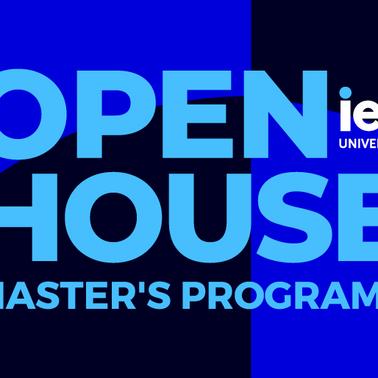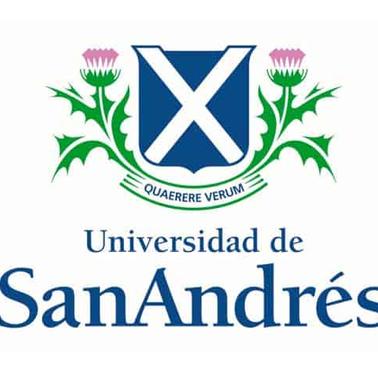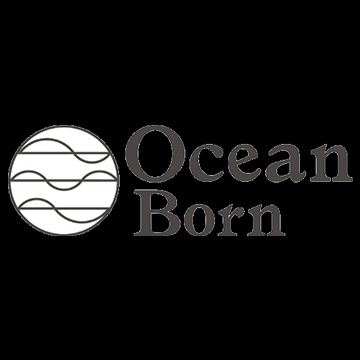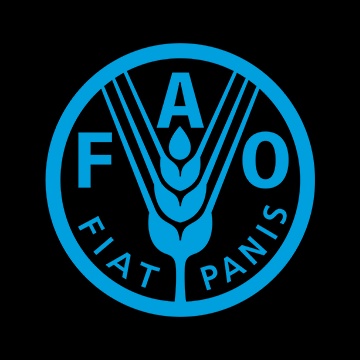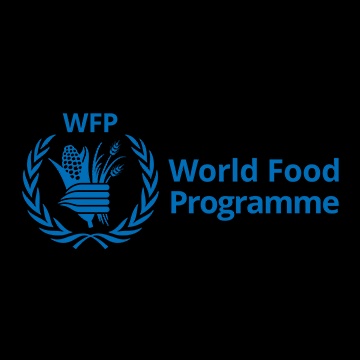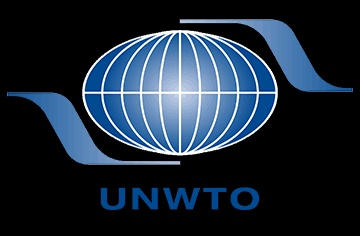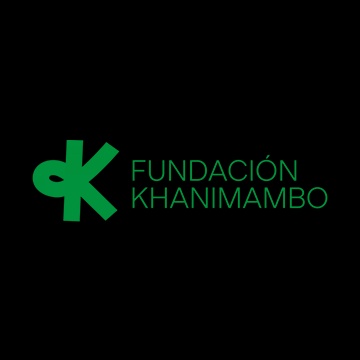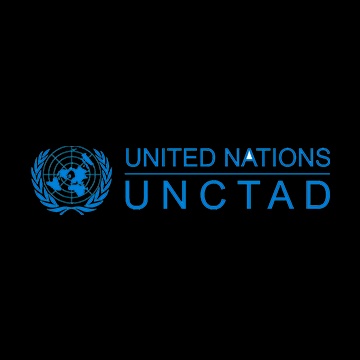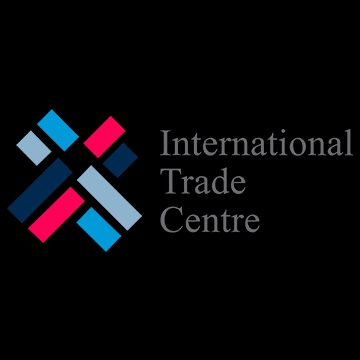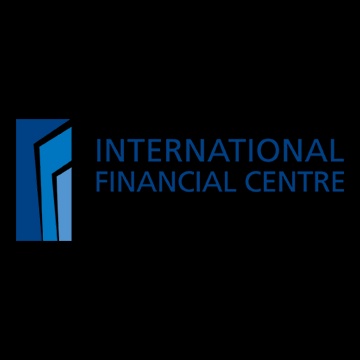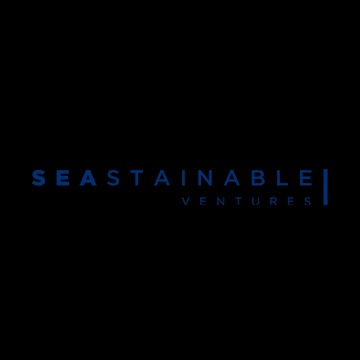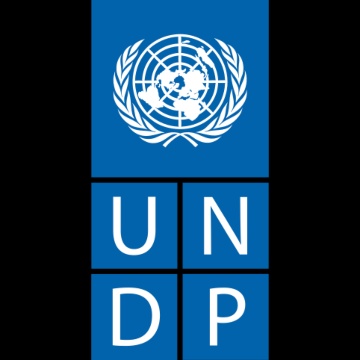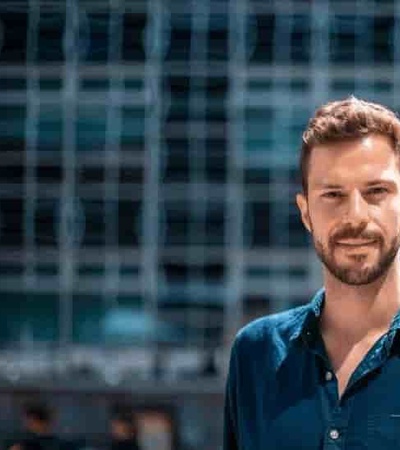
Master in International Development

A PROGRAM DESIGNED FOR THE FUTURE LEADERS OF THE WORLD
The Master in International Development is a forward-thinking and comprehensive program designed to align with the principles of the UN's 2030 Agenda for Sustainable Development, which focuses on the 5 P's: people, planet, peace, prosperity, and partnership.
Structured around key thematic areas, this program aims to equip students with a profound understanding of the intricate mechanisms involved in international development. Through a combination of rigorous coursework and practical training, students develop the skills necessary to advance their careers and contribute significantly to global progress.
Moreover, the Master in International Development offers a personalized learning experience. With four specialization tracks available—Development Innovation & Emerging Technologies, Governance & Social Inclusion, Environmental Politics and Climate Action, and Finance, Trade, and Business for Sustainable Development—students have the flexibility to tailor their program to their specific interests and career goals.
The core courses within the program are divided into three areas: Cross-cultural Negotiation and Empowerment, 2030 Sustainable Development Agenda, and Data Analysis and Project Management. These courses provide students with a solid foundation in key areas of international development, preparing them to tackle complex challenges in the field.

Cross-cultural negotiation and empowerment
A strong foundation in emotional intelligence and other soft skills will help students grow both personally and professionally, and teach them how to lead teams effectively in multicultural environments. By focusing on case studies, students acquire practical management techniques and learn how to drive long-term positive change in communities.
2030 Sustainable Development Agenda
Students will receive an introduction to the world of development policy, structured around the 5 Ps of the UN's 2030 Sustainable Development Agenda: People, Planet, Prosperity, Peace and Partnership. This will deepen their understanding of the need to drive sustainable, positive growth that respects the environment and local communities.
Data analysis and project management
The next generation of international development professionals needs strong analytical and management skills in order to lead teams and ensure that projects are positive, sustainable and efficient. Students will become familiar with data analysis, project management, impact assessment and risk analysis, and learn to apply this information when designing and implementing development projects.
EXPLORE THE MASTER IN INTERNATIONAL DEVELOPMENT
- PRE-PROGRAM
- TERMS10 Months
- Specialization trackTerm 3
- FINAL PROJECT
- ADD-ONS
- 1st termSeptember - December
- 2nd TermJANUARY- APRIL
- 3rd TermAPRIL- JULY
- DEVELOPMENT INNOVATION & EMERGING TECHNOLOGIES
- ENVIRONMENTAL POLITICS AND CLIMATE ACTION
- GOVERNANCE & SOCIAL INCLUSION
- FINANCE, TRADE, AND BUINESS FOR SUSTAINABLE DEVELOPMENT
- IMMERSION WEEK IN GENEVA
- PERSONAL & CAREER DEVELOPMENT WORKSHOPS
- CERTIFICATE ON FOUNDATIONS OF SUSTAINABILITY
- Exchanges
The pre-program is an introductory period where you will delve into key economic theories and develop skills to handle real-world data, while gaining insights on probability theory and economic theory. Unless you pass an exam beforehand, the pre-program is mandatory to progress to the Master in International Development.
PROBABILITY AND STATISTICS PRE-COURSE
PROBABILITY AND STATISTICS PRE-COURSE This pre-course has been designed to introduce you to the basics in statistical data analysis. By taking this course, you will learn essential mathematical principles, core statistical concepts, and the use of statistical software R which lays the foundations of the program.
DEVELOPMENT ECONOMICS PRE-COURSE
This pre-course has been designed to provide you with an understanding of core economic principles and how they apply to real-world issues. During this course, you will learn key economic concepts, as well as fiscal and monetary policies, that will be essential during the Master in International Development.
This final project can take the form of either a traditional master’s thesis or a Capstone Consulting Project.
MASTER’S THESIS
The master’s thesis presents an opportunity for students to gain true expertise in a certain aspect of international development. Each student is allocated an academic tutor, who supervises them and guides them through the challenges of multidisciplinary research. This gives them the chance to put the critical thinking skills they’ve learned over the course of the program to the test.
CAPSTONE CONSULTING PROJECT
Students who take on the Capstone Consulting Project are placed with an international organization for the final two terms of the program. Each student is supervised by a coordinator from the host company, who regularly monitors them as they carry out risk assessment and impact reports, putting their theoretical knowledge into practice.
The Development Innovation & Emerging Technologies specialization track trains students to operate at the intersection of development and the digital revolution. Today’s emerging technologies present enormous opportunities for development practitioners. As local governments and international organizations increasingly adopt the use of data and technology, they could drastically improve public services in the developing world.
However, harnessing these innovations comes with its own set of challenges and potentially adverse outcomes. With this track, students will acquire the skills to navigate these difficulties moving into the future.
EMERGING TECHNOLOGIES AND SUSTAINABLE DEVELOPMENT
This course will provide a comprehensive analysis of technological innovation, with a specific focus on the role of emerging technologies in achieving sustainable development. Students will examine how to use technology to solve economic, social and ecological challenges, such as meeting basic needs in developing countries, addressing economic slowdown in industrialized nations, dealing with climate change and achieving sustainable development. They will also examine motives behind resistance to innovation while outlining strategies to overcome such resistance.
TECHNOLOGY IN THE PUBLIC SECTOR
This course will take a deep dive into the effects on policy-making processes by the GovTech ecosystem, with special attention to stakeholder diversity and dynamics. You will learn from case studies, engage with experts in the field, and create your own compelling, tech-powered public/private initiative during our Bootcamp.
INNOVATION FOR DEVELOPMENT
This course comprises Masterclasses and Bootcamps that reinforce the theory and practice of Big Data and Sustainable Development. An instructor will guide the Masterclasses, while Bootcamps will be practical sessions. This builds the capacity to use open data sources to frame Sustainable Development projects.
The Environmental Politics and Climate Action specialization track explores the importance of effective environmental policies to international development. Through it, students will be empowered to tackle the ecological challenges that will define development work in the 21st century.
Development projects and policies that neglect conservation and ecological adaptation are destined to fail. Therefore, students will learn to integrate sustainable development with ecological principles and how to conduct strategic planning that accounts for ecological risks and realities.
ENVIRONMENTAL POLICY DESIGN
The Environmental Politics and Climate Action specialization track explores the importance of effective environmental policies to international development. Through it, students will be empowered to tackle the ecological challenges that will define development work in the 21st century.
Development projects and policies that neglect conservation and ecological adaptation are destined to fail. Therefore, students will learn to integrate sustainable development with ecological principles and how to conduct strategic planning that accounts for ecological risks and realities.
BIODIVERSITY AND CONSERVATION
This course addresses the fundamentals of global biodiversity and the importance of its conservation, and introduces concepts such as natural capital. You will examine active conservation, studying the connection between people and biodiversity. You will also participate in an outdoor activity known as “bird ringing” hosted by scientific staff.
POLITICAL ECONOMY OF NATURAL DISASTERS
Climate change will increase the frequency, seasonality, severity, intensity and size of natural disasters. In this course, students will examine the political economy of climate change-induced natural disasters through the lens of three complementary analytical frameworks: environmental politics and political ecology, landscape and disturbance ecology, and coupled human and natural systems theory. After examining basic concepts and theories, they’ll review debates associated with two specific topics: large-scale tree plantation to mitigate climate change and the impacts of extreme weather event changes in coastal areas.
The Governance & Social Inclusion specialization track provides students with the knowledge and tools to develop, design and evaluate policies that promote quality social services and reduce discrimination and inequality.
PUBLIC HEALTH POLICY
This course is intended to build understanding of the context of armed conflicts and what drives them, and building sustainable peace. Students will examine human security before moving on to explore conflict prevention and peacemaking. You will learn different conflict analysis tools, and apply them to a practical case.
INCLUSIVE EDUCATION
This course examines the links between education, inequality, and economic growth, taking a global view of educational investment and attainment. Exploring alternative sources of educational funding and the role of IMF-based programs, you will participate in class discussions of theoretical and practical issues, and work in groups on practical assignments.
GENDER AND SUSTAINABLE DEVELOPMENT
This course will provide a general introduction to gender equality and investigate current conditions in society such as economic opportunities or education. Students will understand the role that gender stereotypes and social norms play in perpetuating gender inequalities across the globe, and how to address future inequality.
With the Finance, Trade and Economics for Sustainable Development track, students will gain the expertise necessary to operate in the complex, ever-changing world of global economics.
This is especially relevant as the sustainable finance movement continues to gain global momentum. New forms of international trade and finance, combined with context-appropriate fiscal, monetary, and social policy, may hold the key to unlocking the potential of the world's developing economies.
SUSTAINABLE FINANCE
This course focuses on the technical capacity to design solutions and raise sustainable capital for the UN Sustainable Development Goals. You will learn about the role of the private sector in moving towards a more sustainable economic model, and how to engage climate finance opportunities.
INTERNATIONAL TRADE AND AGENDA 2030
This course combines analytical and methodological insights from political science and economics to understand environmental politics. You will examine the capacity for globalization and economic growth to be compatible with environmental sustainability, and address the current debates on the international political economy.
THE ROLE OF THE PRIVATE SECTOR IN SUSTAINABLE DEVLOPMENT
This course will examine the private sector’s role in sustainable development by incorporating social and environmental impact within the value chain of economic returns. There is a final group project to dive into an Inclusive Business venture or develop a new business idea that will solve a key development issue.

Students will enjoy a unique, week-long immersion experience in Geneva, where they’ll have an unparalleled opportunity to visit international organizations and network with international development professionals. This will enable them to gain a better understanding of what kind of work awaits them after graduation.

- Introduction to Career Services.
- Personal Branding.
- How to improve your CV and Cover Letter.
- Interview Preparation and Salary Negotiation.
- How To Use LinkedIn.
- Job Hunting Workshop.

IE University’s Certificate on Foundations of Sustainability is an optional program you can use to complement your master’s degree and showcase your individual commitment to incorporating sustainability into your professional work. The Certificate takes a dynamic, holistic approach that will shape your thinking and give you the highly in-demand skills to address today’s most pressing challenges. The program will provide you with a highly sought-after set of skills and knowledge that are required to tackle the challenges our institutions, corporations and societies are facing today.
You can customize your program by spending an extra semester at one of our 11 partner universities worldwide after your third term in Madrid. Please note that spots are limited in all exchange programs.
Some of the partner universities are:
ADAPTIVE LEADERSHIP AND COMMUNITY EMPOWERMENT
With this course, students will gain the tools for effective leadership. They’ll be equipped to lead in any role, regardless of formal authority, and in any setting, including political or organizational. Through hands-on activities, students will learn to think on their feet to solve complex social issues, create supportive environments that welcome different viewpoints, devise strategies challenging hidden beliefs, understand group loyalties and conflicts, and establish safe spaces for open discussion and risk-taking, helping to build a flexible and adaptable culture.
DEVELOPMENT ECONOMICS
This course provides an in-depth understanding of the economic development process. Students learn to apply various tools and frameworks to assess a region's or country's growth trajectory, key growth questions and opportunities for productive diversification. They also identify the most significant constraints to realizing these opportunities. Ultimately, they’ll know how to translate these research findings into actionable policy insights to mitigate or overcome identified constraints. Additionally, students will produce high-quality applied research that informs policy decisions for specific countries and regions.
HUMAN RIGHTS AND SOCIAL INCLUSION
This course provides a foundational understanding of Human Rights Law and its role in social inclusion and sustainable development. Students cover key concepts, historical developments and their relevance to the 2030 Agenda for Sustainable Development. They will also study the Human Rights-Based Approach to development programming and apply it through case studies focused on social inclusion, gender equality and violence prevention. Subsequently, they’ll delve into topics like conflict, migration and children's rights, emphasizing practical experience through testimonies from affected individuals.
PROBABILITY AND STATISTICS
The course introduces the use of probability and statistics in the social sciences, particularly in international development. Students will establish firm theoretical foundations that will empower them to confidently construct data analysis models in the second and third terms. They’ll also learn to leverage the quantitative analysis of data to make predictions and evaluate policies for governments, international organizations and NGOs, enhancing their analytical skills and expertise in data-driven decision-making.
RESULTS-BASED MANAGEMENT
This course introduces Results-Based Management (RBM), a framework used by the UN and other organizations to manage projects and programs. Students will master project management techniques for various environments and learn to lead positive change across sectors. They’ll also cover structured problem-solving, performance measurement and strategic planning within the context of RBM. Additionally, they will explore options for financial aid and grant applications. By the end, students will understand key RBM principles and tools, and how to incorporate monitoring and evaluation into their projects.
INTERATIONAL DEVELOPMENT: MULTI-STAKEHOLDER PARTNERSHIP AND ENGAGEMENT
Explore the evolution of international development theories and policies, with a focus on multi-stakeholder partnerships addressing global challenges. This course examines key actors like governments, NGOs, and the private sector, while addressing topics such as climate change, economic inequality, and technology's role in development. Through case studies and practical examples, students will build skills to critically assess strategies and drive impactful change.
Subject | ECTS | Type | Syllabus |
|---|---|---|---|
Development Economics | 3 ECTS | Core | |
Probability and Statistics | 3 ECTS | Core | |
Interational Development: Multi-Stakeholder Partnership and Engagement | 3 ECTS | Core | |
Human Rights and Social Inclusion | 3 ECTS | Core | |
Adaptive Leadership and Community Empowerment | 3 ECTS | Core | |
Results-Based Management | 3 ECTS | Core |
NEGOTIATION AND POLITICAL ACUMEN
This course will help students understand the practical and theoretical frameworks supporting successful negotiation across cultural boundaries. They will develop essential skills and knowledge in intercultural communication, a necessity in today's globalized world. They’ll learn how to advocate for themselves and their organizations while engaging in strategic negotiations that build enduring, mutually beneficial relationships with diverse stakeholders. Additionally, they’ll examine real-world cases involving governments, multilateral organizations and NGOs to grasp the unique dynamics that shape development cooperation.
GOVERNANCE AND STRONG INSTITUTIONS
The primary goal of this course is to help students understand the role political and economic institutions play in facilitating just, inclusive and effective governance. Students will explore why strong institutions and good governance are crucial ingredients for sustainable development. They’ll also dive into how these critical elements protect the system-wide respect for the human rights principles of non-discrimination, participation, accountability and the rule of law.
RISK IN INTERNATIONAL DEVELOPMENT
The course focuses primarily on risk, a multidimensional, measurable factor that organizations must identify and manage in order to reach their goals. It provides students with an overview of the nature of risk vs. uncertainty. They will learn the methods used to analyze risk systematically and acquire strategies to mitigate it at the individual and organizational levels. Students will also cover strategic foresight tools and how they can be leveraged to improve decision-making.
ECONOMETRICS: DATA ANALYTICS FOR DEVELOPMENT
This course offers students an in-depth exploration of the evolving field of data analysis and its critical role in the development sector. They will understand how rapid advancements in data technologies have created unparalleled opportunities for progress, societal trend analysis and the development of effective strategies. Specifically designed to bridge theory and practice, students will be equipped with essential knowledge and skills for data-driven decision-making in the realm of development.
ENVIRONMENT, CLIMATE AND DEVELOPMENT
This course explores the scientific and societal dimensions of key environmental crises, including climate change, biodiversity loss, and pollution. Students will examine the drivers and impacts of these issues on ecosystems, economies, and human development, using frameworks like planetary boundaries. The course also evaluates global efforts for mitigation, adaptation, and sustainable transitions, emphasizing policy effectiveness and justice. Through collaborative and applied learning, students will develop the tools to address pressing environmental challenges.
Subject | ECTS | Type | Syllabus |
|---|---|---|---|
Environmental Policy Design | 3 ECTS | Elective: Environmental Politics and Climate Action track | |
Biodiversity and Conservation | 3 ECTS | Elective: Environmental Politics and Climate Action track | |
Political Economy of Natural Disasters | 3 ECTS | Elective: Environmental Politics and Climate Action track | |
Sustainable Finance | 3 ECTS | Elective: Finance, Trade, and Business for Sustainable Development track | |
International Trade and Agenda 2030 | 3 ECTS | Elective: Finance, Trade, and Business for Sustainable Development track | |
The Role of the Private Sector in Sustainable Development | 3 ECTS | Elective: Finance, Trade, and Business for Sustainable Development track | |
Public Health Policy | 3 ECTS | Elective: Governance and Social Inclusion track | |
Inclusive education | 3 ECTS | Elective: Governance and Social Inclusion track | |
Gender and Sustainable Development | 3 ECTS | Elective: Governance and Social Inclusion track | |
Emerging Technologies and Sustainable Development | 3 ECTS | Elective: Development, Innovation, and Emerging Technologies track | |
Technology in the Public Sector | 3 ECTS | Elective: Development, Innovation, and Emerging Technologies track | |
Innovation for Development | 3 ECTS | Elective: Development, Innovation, and Emerging Technologies track |
- PRE-PROGRAM
- TERMS10 Months
- Specialization trackTerm 3
- FINAL PROJECT
- ADD-ONS
Save the Date
Save the Date
Open House at Madrid: Don't miss the opportunity to engage with top faculty & connect with a powerful alumni network
FACT SHEET
PROGRAM
Máster Universitario en Desarrollo Internacional / Master in International Development por la IE Universidad
DURATION
10 Months
LANGUAGE
English
CENTRES OF STUDY AND NUMBER OF PLACES
Centro de Estudios Superiores IE (Madrid) – 50 plazas
Total number of credits: 60 ECTS
Distribution of credits and subjects**:
Mandatory subjects – 36 ECTS
Elective subjects– 18 ECTS
Final Project – 6 ECTS
AREA OF KNOWLEDGE
Economic Sciences, Law and Legal Specializations
TEACHING METHODOLOGY
Face-to-face
PROGRAM DATA AND INTERNAL QUALITY ASSURANCE SYSTEM
SPANISH MINISTRY’S REGISTRY OF UNIVERSITIES, CENTRES AND DEGREES
ASSURANCE AGENCY***
IMMERSION WEEK EXPERIENCE
During your Master in International Development, you can get a hands-on experience throughout one week while visiting international organizations and learning from top notch experts how they are overcoming the current global challenges in the field.
* Visits to organizations may vary from one year to another.
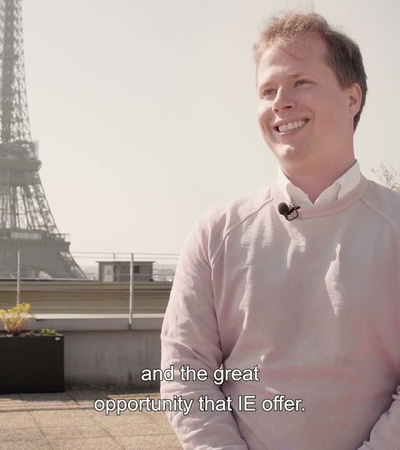
PARTNER UNIVERSITIES FOR THE EXCHANGES
You can personalize your program by spending an additional semester at one of our partner universities worldwide, following the third and final semester in Madrid. Our agreements with these institutions offer you the chance to gain international experience and expand your learning at some of the world's top universities.
NOTE: Spots are limited in all exchange programs. Upon acceptance into an exchange program, there is a fee for reserving your place, but tuition at the partner institution is free of charge. You'll only need to cover your living expenses while there.
SCIENCES PO
UNIVERSITY OF PITTSBURGH
UNIVERSIDAD DE SAN ANDRÉS
UNIVERSITY OF ST. GALLEN
UNIVERSITY OF TORONTO, MUNK SCHOOL OF GLOBAL AFFAIRS
AMERICAN UNIVERSITY OF BEIRUT
UNIVERSITY OF ICELAND
TECHNICAL UNIVERSITY OF MUNICH
UNIVERSITY OF BOLOGNA (ITALY)
UNIVERSITY OF MILAN
LUISS, ROMA
University of Iceland
Central European University (CEU)
Kautilya School of Public Policy
European University Institute (EUI)
CAPSTONE PARTNERS
For their final project, students of the Master in International Development can choose between an individual, research-oriented thesis or a practical team-based Capstone Consulting Project. Underneath you can find some of capstone partners for the Master in International Development.
NOTE: The partners listed here are from previous intakes. Partnering institutions may vary from year to year.
ABOUT THE UNITED NATIONS SYSTEM STAFF COLLEGE
IE School of Politics, Economics & Global Affairs and the United Nations System Staff College have joined forces to build a Master’s degree program to attend to the 2030 Sustainable Development Agenda set by the United Nations.
The United Nations System Staff College (UNSSC) is the center of excellence for training and knowledge management within the UN system, which aims to transform the United Nations into a more effective, results-oriented and agile global organization dissemination.
The UNSSC was established in 2002 by the UN General Assembly to serve the personnel of the United Nations and its affiliates. Since 2015, all of the organization’s research and learning efforts have been geared toward enabling the UN system and partners to address the challenges posed by the 2030 Agenda for Sustainable Development. The UNSSC is headquartered in Turin, Italy, and has a second campus in Bonn, Germany.
IMMERSION WEEK IN GENEVA
Students will enjoy a unique week-long immersion experience in Geneva, where they’ll have an unparalleled opportunity to visit international organizations and network with international development professionals. This will enable them to gain a better understanding of what kind of work awaits them after graduation.
SURROUND YOURSELF WITH UN PROFESSIONALS
Students will engage with top professionals from the UN system as they teach courses and participate in special events such as conferences, seminars, networking events and capstone projects.
JOINT DESIGN OF THE ACADEMIC CURRICULUM
The program’s curriculum focuses on the five P’s: People, Planet, Prosperity, Peace, and Partnership. During the first and second terms, students will touch on each one. They’ll learn how the UN is addressing these issues, and how to tackle them head-on by creating innovative solutions.
CAREER AND INTERNSHIP SUPPORT
Students are encouraged to participate in UN field internships after graduation. IE Career Services helps to facilitate these experiences and provides career guidance.
AWARD OF ACCOMPLISHMENT
Upon completion of the master’s program, each student will receive a certificate of accomplishment from the United Nations.
UNLOCKING A SUSTAINABLE FUTURE WITH UNSSC
GAIN VALUABLE EXPERIENCE AND PUT THEORY INTO PRACTICE!
As a component of the Master in International Development, you'll have the opportunity to engage in hands-on, interactive experiences beyond the classroom. These experiences may vary annually. For instance, there's the H.E.A.T program—a distinctive week-long outdoor activity focused on equipping you with essential knowledge and techniques to handle hazardous situations. Discover how you can acquire and utilize practical skills to tackle real-world challenges.
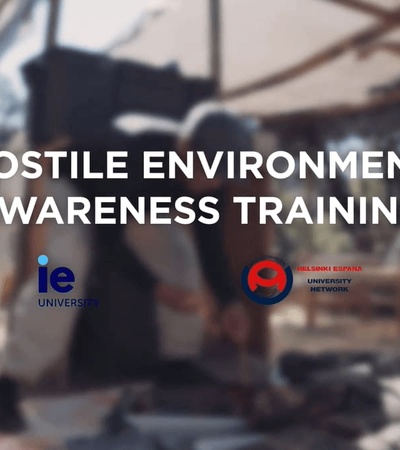
Frequently Asked Questions
What are the courses under International Development?
As one of the best international development graduate programs in the world, the study plan revolves around the five P’s of the UN 2030 Agenda for Sustainable Development: people, planet, peace, prosperity and partnership. Coursework includes data analysis, project management, cross-cultural negotiation, empowerment, specialization tracks, and Capstone Projects.
How long does a masters in international development take?
The Master in International Development is 10 months long and is complemented by an immersion week in Geneva.
Is a Master in International Development hard?
IE University’s Master in International Development is designed for students who thrive under an intensive academic workload.
Where can I study International Development in Europe?
IE University’s Master in International Development, developed in collaboration with the United Nations System Staff College, offers students unique insights into international relations, economics, politics, social entrepreneurship and development.



